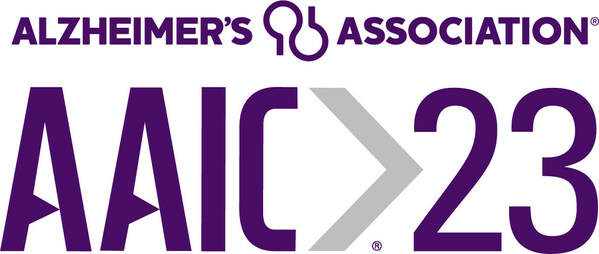 |
AMSTERDAM, July 17, 2023 /PRNewswire/ -- The data reported today by Eli Lilly from the TRAILBLAZER-ALZ 2 clinical trial of donanemab in early symptomatic Alzheimer's disease demonstrate an important advancement in Alzheimer's research and treatment.
The full Phase 3 data was reported at the Alzheimer's Association International Conference® (AAIC®) 2023, in Amsterdam, Netherlands, and online. The data were simultaneously published in the Journal of the American Medical Association.
The results showed that donanemab significantly slowed cognitive and functional decline in people with early symptomatic Alzheimer's disease (either mild cognitive impairment or mild dementia), confirming the company's May 2023 topline data release. At AAIC, we learned:
"With this fuller picture, there is additional, convincing scientific evidence that thoroughly removing beta amyloid from the brain is associated with significant slowing of disease progression in people living with early Alzheimer's," said Maria C. Carrillo, Ph.D., Alzheimer's Association chief science officer.
"The results illustrate that initiating treatment as early as possible enables the possibility of a bigger beneficial effect, but also that there is potential for slowing of disease progression even when treatment is started later in the disease progression," Carrillo said. "These benefits are real and meaningful, giving people more time to participate in daily life, remain independent and make future health care decisions."
Participants in TRAILBLAZER-ALZ 2 were assessed over 18 months using scales that measure both cognition and function. A pre-specified analysis of low-medium tau participants based on clinical stage showed greater benefit of donanemab in those at earlier stages of disease.
As with other anti-amyloid treatments, this treatment has side effects. According to the company, the level and severity of amyloid related imaging abnormalities, also known as ARIA, was consistent with the TRAILBLAZER-ALZ Phase 2 study. ARIA is usually asymptomatic, but it can be serious. This risk can be managed with careful observation and monitoring, and removal from treatment, if warranted. Treatment often can be re-introduced.
Patients living with a fatal disease, and their families, should always talk with their doctors to develop a treatment plan that is right for them, including weighing the benefits and risks of approved therapies.
The company shared publicly that it has completed its submission to the U.S. Food and Drug Administration (FDA) for traditional approval, with regulatory action expected by the end of the year, and also that submissions to other global regulators are underway. Based on the positive clinical trial results, the Alzheimer's Association strongly supports traditional FDA approval and, once it is approved, we expect CMS and other private insurance to fully and immediately cover this treatment for people who will benefit.
The Alzheimer's Association remains disappointed that so little progress is being made in improving representation of all affected communities in Alzheimer's clinical trials, including this one. For example, dementia disproportionately affects Black and Hispanic Americans yet, too often, they are severely underrepresented in treatment studies. It is critical that clinical trials accurately reflect the population they seek to serve. We must do all that we can to reach communities that are underrepresented so that discoveries that are made will benefit all.
Donanemab clinical trial testing differs from that conducted on the two FDA-approved Alzheimer's anti-amyloid treatments in that study participants go off treatment once they achieve a predetermined level of amyloid clearance from the brain. Once below a certain threshold, patients were removed from treatment and added to the placebo group. Half (52%) of study participants who received the drug finished the course of treatment in less than 12 months; 72% completed by 18 months. This is notable for patients, families, prescribers and payers because patients may not need to receive this treatment on an ongoing basis for the rest of their lives.
As we reflect on the importance of the positive results announced today, the Alzheimer's Association remains committed to advancing all potential treatment avenues and exploring methods for combining diverse approaches into combination therapies. There must be access to all approved treatments, as well as quality care and support for all people.
About the Alzheimer's Association International Conference® (AAIC®)
The Alzheimer's Association International Conference (AAIC) is the world's largest gathering of researchers from around the world focused on Alzheimer's and other dementias. As a part of the Alzheimer's Association's research program, AAIC serves as a catalyst for generating new knowledge about dementia and fostering a vital, collegial research community.
AAIC 2023 home page: www.alz.org/aaic/
AAIC 2023 newsroom: www.alz.org/aaic/pressroom.asp
AAIC 2023 hashtag: #AAIC23
Alzheimer's Association
The Alzheimer's Association leads the way to end Alzheimer's and all other dementia — by accelerating global research, driving risk reduction and early detection, and maximizing quality care and support. Our vision is a world without Alzheimer's and all other dementia. Visit alz.org or call the 24/7 Helpline at 800.272.3900.